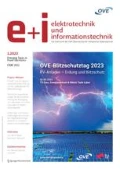Zusammenfassung
Power-aware Hardware/Software Codesign definiert eine Design-Methode für die Entwicklung energieeffizienter, eingebetteter Systeme. Durch das verstärkte Aufkommen von Geräten, die ihre Energie aus der Umgebung beziehen ("Energy Harvesting") oder kontaktlos über ein RF-Feld versorgt werden, hat sich auch der Fokus des Designprozesses verlagert. Statt sich ausschließlich auf die Energieoptimierung zu konzentrieren, müssen nun auch immer stärker Einschränkungen bezüglich der Leistungsaufnahme berücksichtigt werden. In diesem Artikel werden verschiedene Codesign-Flows vorgestellt und deren Bedeutung in der Entwicklung von leistungs- und energieeffizienten Systemen unterstrichen. Darüber hinaus wird die industrielle Relevanz des Hardware/Software Codesigns anhand eines konkreten Anwendungsfalls in der Anwendungsdomäne von kontaktlosen Chipkarten gezeigt.
Summary
Power-aware hardware/software codesign defines a design methodology for the development of energy efficient embedded systems. With the appearance of energy-harvesting devices or RF-powered smart cards in recent years, the focus of the design process has been shifting from purely energy-oriented to power-constraints-oriented optimization strategies. In this paper we present an overview of various codesign flows and we motivate the importance of power awareness in today's design processes. Moreover, the industrial relevance of hardware/software codesign is shown in a case study of an RF-powered smart card system.
References
Bachmann, C., Genser, A., Steger, C., Weiss, R., Haid, J. (2010a): An automated framework for power-critical code region detection and power peak optimization for embedded software. PATMOS 2010
Bachmann, C., Genser, A., Steger, C., Weiss, R., Haid, J. (2010b): Automated power characterization for run-time power emulation of SoC designs. DSD 2010
Balarin, F., Chiodo, M., Giusto, P., Hsieh, H., Jurecska, A., Lavagno, L., Passerone, C., Sangiovanni-Vincentelli, A., Sentovich, E., Suzuki, E., Tabbara, B. (1997): Hardware-Software Co-Design of Embedded Systems – The Polis Approach. 5th Printing 2003. Boston/Dordrecht/London: Kluwer Academic Publishers
Ernst, R. (1998): Codesign of embedded systems: status and trends. Proc. of IEEE Design & Test of Computers
Finkenzeller, K. (2010): RFID Handbook. Hoboken, New Jersey: John Wiley & Sons
Genser, A., Bachmann, C., Steger, C., Weiss, R, Haid, J. (2009): An Emulation-Based Real-Time Power Profiling Unit for Embedded Software. SAMOS, 2009
Grumer, M. (2005): Evaluation of a Horizontal HW/SW Codesign Approach based on an Application Specific Smart Card Processor. Master Thesis, Graz University of Technology, Graz, Austria
Grumer, M., Wendt, M., Steger, C., Weiss, R., Neffe, U., Muehlberger, A. (2007): Automated instruction set characterization and power profile driven software optimization for mobile devices. PATMOS, 2007
Haid, J., Kargl, W., Leutgeb, T., Scheiblhofer, D. (2005): Power management for RF-powered vs. battery-powered devices. In: TMCS, 2005
Haid, J., Bachmann, C., Genser, A., Steger, C., Weiss, R. (2010): Power emulation: methodology and applications for HW/SW power optimization. MEMOCODE 2010
Janek, A. (2008): Architecture Design and Simulation of Energy Harvesting Sensors. Ph.D. Thesis, Department of Electrical Engineering, Graz University of Technology, Graz, Austria
Kajtazovic, S., Steger, C., Schuhai, A., Pistauer, M. (2006): Automatic generation of a verification platform for heterogeneous system designs. In: Advances in Design and Specification Languages for SoCs – Selected Contributions from FDL'05. Boston/Dordrecht/London: Kluwer Academic Publishers
Neffe, U. (2005): A Hardware/Software Codesign Methodology for Power-Aware Smart Cards. Ph.D. Thesis, Department of Electrical Engineering, Graz University of Technology, Graz, Austria
Raghunathan, A., Jha, N. K., Dey, S. (1998): High-Level Power Analysis and Optimization. Norwell, MA, USA: Kluwer Academic Publishers
Wendt, M. (2005): Reduction of Power Consumption of a Java Card Virtual Machine using a Vertical Hardware/Software Codesign Approach. Master Thesis, Graz University of Technology, Graz, Austria
Wendt, M., Grumer, M., Steger, C., Weiss, R., Neffe, U., Muehlberger, A. (2010): Tool for automated instruction set characterization for software power estimation. IEEE Transactions on Instrumentation and Measurement
Author information
Authors and Affiliations
Rights and permissions
About this article
Cite this article
Steger, C., Bachmann, C., Genser, A. et al. Power-aware hardware/software codesign of mobile devices. Elektrotech. Inftech. 127, 327–334 (2010). https://doi.org/10.1007/s00502-010-0784-4
Received:
Accepted:
Issue Date:
DOI: https://doi.org/10.1007/s00502-010-0784-4

